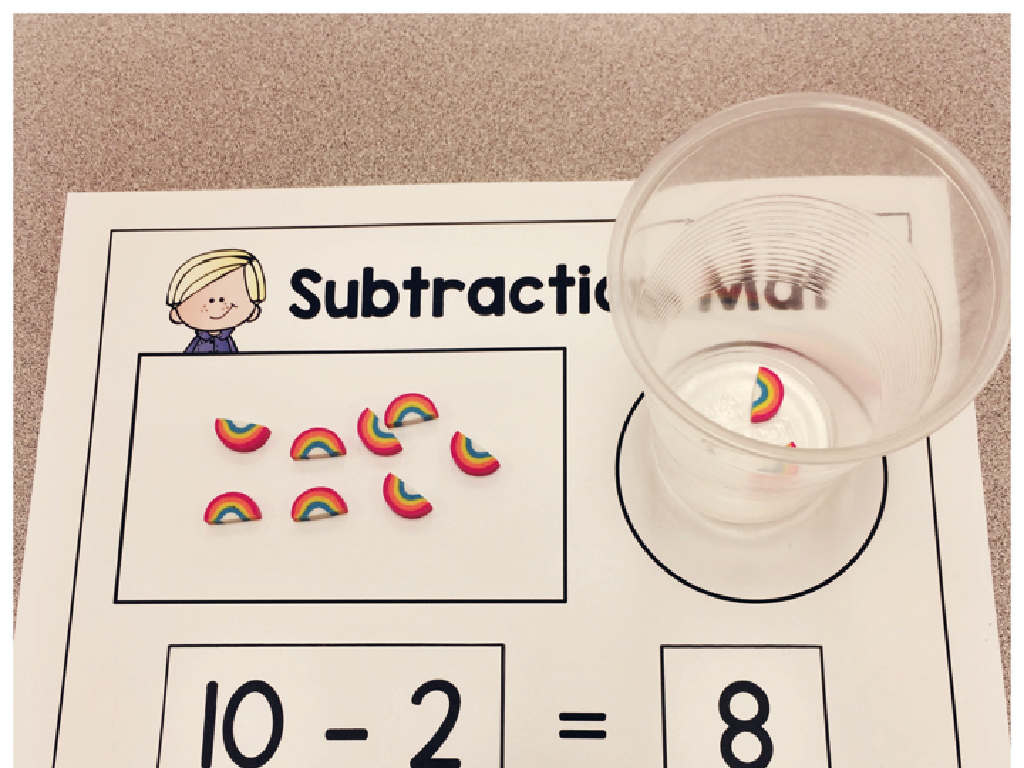Correct Capitalization Errors
Subject: Language arts
Grade: Eighth grade
Topic: Capitalization
Please LOG IN to download the presentation. Access is available to registered users only.
View More Content
Mastering Capitalization: Spot & Fix Errors
– Grasp capitalization significance
– Capitalization affects meaning and readability.
– Today’s goal: Fix capitalization
– We’ll learn to identify and correct mistakes.
– Capital letters start sentences
– Remember, every sentence begins with a capital letter.
– Proper nouns always need capitals
– Names, places, and titles are proper nouns.
|
This slide introduces the concept of capitalization and its importance in written English. Emphasize to students that proper capitalization is crucial for clear communication, as it helps readers understand the beginning of sentences and the significance of proper nouns. During the lesson, focus on common capitalization errors and how to correct them. Use examples to illustrate correct usage, such as the difference between ‘i’ in the middle of a sentence and the pronoun ‘I’. Encourage students to practice by identifying errors in sample sentences and correcting them. This will help reinforce the rules and improve their writing skills.
Understanding Capitalization
– Capitalization basics
– Use uppercase for sentence starts and proper nouns.
– Significance in sentences
– It signals a new sentence or quote.
– Usage with proper nouns
– Names, places, and titles always get capitalized.
– Capitalization indicates importance
– Capital letters can highlight specific points.
|
This slide introduces the concept of capitalization, which is a fundamental rule in English grammar. Capitalization involves using uppercase letters at the beginning of sentences and for proper nouns, which include specific names of people, places, organizations, and sometimes things. It’s crucial for students to recognize that capitalization helps readers understand where sentences begin and end, and it also distinguishes general words from ones of special importance. In the next class, we will practice identifying and correcting capitalization errors in various texts. Encourage students to look for capitalization clues in their everyday reading materials, such as books, signs, and articles.
Capitalization Rules
– Capitalize sentence beginnings
– Capitalize names and titles
– For example: Dr. Sarah Johnson, President Lincoln
– Capitalize days, months, holidays
– For example: Thursday, July, Thanksgiving
– Capitalize titles in works
– For example: ‘To Kill a Mockingbird’, ‘The Star-Spangled Banner’
|
This slide aims to reinforce the fundamental rules of capitalization. Students should understand that the first word of every sentence needs a capital letter. Emphasize the importance of capitalizing proper nouns, including people’s names and titles, to show respect and to distinguish from common nouns. Clarify that while days, months, and holidays are capitalized, seasons are not unless part of a title. When it comes to titles of books, articles, and songs, most words are capitalized; however, there are exceptions like conjunctions and prepositions. Provide examples for each rule and encourage students to correct sentences with capitalization errors. This practice will help them remember the rules more effectively.
Common Capitalization Errors
– Capitalize proper nouns
– Names of people, places, and organizations must start with a capital letter.
– Correct title capitalization
– In titles, capitalize the first and last words, nouns, verbs, adjectives, and adverbs.
– Avoid capitals for emphasis
– Using too many capital letters can be distracting; use italics or bold for emphasis.
– Always capitalize acronyms
– Acronyms like NASA or FBI should always be in capitals.
|
This slide addresses frequent capitalization mistakes and provides guidelines for correct usage. Emphasize the importance of capitalizing proper nouns to distinguish them from common nouns. Explain the rules for capitalizing titles, which often confuse students, and stress the importance of consistency. Discuss the overuse of capital letters for emphasis, which is a common error in informal writing, and offer alternatives such as italics or bold text. Lastly, remind students that acronyms are always capitalized. Provide examples for each point and encourage students to correct sentences with these common errors as a class activity.
Capitalization Correction Practice
– Identify capitalization errors
– Find errors in provided sentences
– Discuss reasons for errors
– Understand why capitalization rules apply
– Learn correction strategies
– Explore methods to fix capitalization
– Practice with example sentences
– Apply learning to correct sample sentences
|
This slide is aimed at engaging students in an interactive practice session on capitalization. Start by presenting sentences with deliberate capitalization errors. Encourage students to identify and underline these errors. Then, facilitate a discussion on why each error is a mistake by referencing specific capitalization rules, such as capitalizing proper nouns, the first word of a sentence, and titles. Provide strategies for remembering these rules, such as mnemonic devices or checklists. Finally, give students a chance to correct the sentences, reinforcing their understanding of correct capitalization. This exercise will help solidify their grasp of capitalization rules in a practical context.
Correcting Capitalization Errors Together
– Let’s correct a paragraph as a class
– Identify capitalization mistakes
– Find words that need a capital letter
– Discuss why they are errors
– Understand the rules of capitalization
– Suggest the right capitalization
– Learn how to apply capitalization correctly
|
This slide is designed to engage the class in a collaborative activity where students will work together to identify and correct capitalization errors in a given paragraph. The activity will help reinforce the rules of capitalization, such as capitalizing the first word of a sentence, proper nouns, titles, and specific places. It will also provide an opportunity for students to explain their reasoning and understand common mistakes. The teacher should prepare a paragraph with deliberate capitalization errors and guide the class through the correction process. Encourage students to explain why a word should be capitalized to ensure comprehension. This interactive approach will help students retain the rules of capitalization more effectively.
Group Activity: Capitalization Correction
– Break into small groups
– Receive a passage with errors
– Each group gets a unique passage
– Work together to correct errors
– Identify and fix capitalization mistakes
– Discuss corrections as a class
|
This group activity is designed to foster collaborative learning as students work together to identify and correct capitalization errors in a given passage. Divide the class into small groups, ensuring a mix of abilities in each to support peer learning. Provide each group with a short passage containing various capitalization errors, such as improper nouns, beginnings of sentences, titles, and days of the week. Encourage students to discuss among themselves why certain words need to be capitalized. After the activity, regroup and have a class discussion about the common errors found and the rules of capitalization that apply. This will reinforce the learning and provide an opportunity for clarification. Possible passages can include excerpts from literature, news articles, or constructed sentences specifically for this exercise.
Review and Reflect: The Importance of Capitalization
– Review group corrections
– Discuss capitalization importance
– Capitalization helps convey respect, proper nouns, and sentence beginnings.
– Reflect on capitalization rules
– Revisit rules for capitalizing days, months, people’s names, and places.
– Share insights on usage
|
This slide aims to consolidate the students’ understanding of capitalization through group review and discussion. Start by having each group present the capitalization errors they corrected. Emphasize the importance of capitalization in writing as it aids in proper communication, showing respect for proper nouns, and indicating the start of new sentences. Encourage students to reflect on the rules they’ve learned, such as capitalizing days of the week, months, names of people, and geographical locations. Facilitate a discussion on how proper capitalization can affect the readability and professionalism of their writing. Share insights and common observations on the usage of capitalization in different texts.
Class Activity: Capitalization Hunt
– Find capitalization in a book/article
– Share findings with the class
– Discuss correct capitalization
– Explain the rules applied for proper nouns, beginnings of sentences, etc.
– Identify any capitalization errors
– Point out errors and correct them as examples
|
This activity is designed to engage students in a practical exercise to identify and understand the use of capitalization in written English. Students should look for examples of capital letters at the beginning of sentences, proper nouns, titles, and other instances where capitalization rules apply. They should be prepared to explain why the capitalization is correct, based on the rules they’ve learned. If they find errors, they should correct them and explain the mistake. This will help reinforce their knowledge of capitalization rules. For the teacher: Prepare a list of capitalization rules for reference, and be ready to guide students through their examples. Consider breaking the class into small groups to discuss their findings before sharing with the entire class. Provide feedback and additional examples as necessary.






